In the world of healthcare, cardiology medical billing is essential for ensuring that cardiology practices get paid accurately and on time for the critical services they provide. As a cardiology practice, it’s crucial to manage billing efficiently to maintain a steady cash flow and reduce administrative burdens. With the ever-changing landscape of healthcare regulations and billing codes, outsourcing to cardiology medical billing experts can significantly improve your financial health.
What is cardiology medical billing?
Cardiology medical billing refers to specialized financial services designed to handle the billing process for cardiology practices. These services include verifying insurance coverage, coding procedures accurately, submitting claims to insurance companies, and following up on unpaid claims. By outsourcing these tasks to a dedicated billing company, cardiology practices can reduce the likelihood of denials and ensure timely payments.
The intricacies of cardiology billing services go beyond basic billing. They require specialized knowledge of cardiology-specific codes (ICD-10, CPT) and complex procedures like stent placements, pacemaker installations, and other heart-related interventions. Additionally, medical billing services ensure that your practice remains compliant with healthcare regulations like HIPAA, Medicare, and Medicaid.
Why Cardiology Medical Billing Matters for Your Practice
1. Maximizing Reimbursements
Cardiology medical billing helps you maximize your reimbursements by ensuring that every procedure is billed accurately and appropriately. Specialized cardiology coders are well-versed in the unique billing requirements for cardiology procedures, such as EKGs, stress tests, and echocardiograms. With proper coding and documentation, your practice can avoid underpayments and missed revenue.
2. Reducing Denials and Delays
One of the major benefits of cardiology billing services is reducing denials and delays. Billing errors, such as incorrect code selection or missing documentation, can result in claim denials. Professional billing services help prevent these issues by ensuring that claims are accurate before submission. They also perform follow-ups on denied claims and handle appeals, ensuring faster payment cycles.
3. Improving Cash Flow
With cardiology billing services, your practice can maintain a healthy cash flow. Accurate billing leads to timely reimbursements, while the streamlined process reduces administrative costs. Instead of dealing with billing disputes or chasing down overdue payments, you can focus on what matters most—providing excellent patient care.
Key Components of Cardiology medical billing
1. Accurate Coding
Accurate coding is the cornerstone of effective cardiology billing services. Coders must assign the correct ICD-10, CPT, and HCPCS codes for every procedure performed. For example, an echocardiogram (CPT code 93306) must be coded correctly to ensure proper reimbursement. Billing professionals trained in cardiology-specific codes are vital to ensuring the accuracy of these claims.
2. Insurance Verification
Before treatment begins, verifying insurance coverage is a crucial step in the cardiology medical billing process. This ensures that the services provided are covered under the patient’s insurance plan, reducing the chances of denied claims. Verification also helps establish patient responsibility for co-pays or deductibles, preventing unexpected costs later on.
3. Claims Submission and Follow-Up
Once claims are prepared, cardiology billing professionals submit them to insurance providers. They then track the status of these claims, following up on any unpaid claims and resubmitting them if necessary. This diligent follow-up ensures that your practice receives the payments owed for services rendered.
4. Compliance with Regulations
Healthcare billing is highly regulated. Cardiology billing services ensure that your practice stays compliant with current healthcare laws, including HIPAA, ACA, and Medicare guidelines. These services also ensure that your practice adheres to payer-specific requirements, helping you avoid costly fines and audits.
The Benefits of Outsourcing Cardiology medical billing
1. Expert Knowledge
Outsourcing your cardiology billing services provides access to experts who specialize in cardiology-specific billing codes and procedures. These professionals understand the nuances of cardiology, such as the differences in billing for coronary angioplasty versus echocardiograms. Their expertise ensures that your practice is billing correctly, reducing errors and denials.
2. Cost Savings
Outsourcing cardiology medical billing can significantly reduce overhead costs. You won’t need to hire, train, or maintain an in-house billing department. Instead, you can rely on an experienced billing team that handles all aspects of revenue cycle management. This cost-effective solution allows you to invest more in patient care while optimizing your financial processes.
3. Improved Efficiency
By outsourcing, your practice gains access to advanced billing technology and automated processes that enhance efficiency. Cardiology medical billing streamlines claim submission, reduces paperwork, and helps improve the overall workflow in your practice. This ensures quicker reimbursements and a smoother cash flow.
4. Focus on Patient Care
When you outsource cardiology medical billing, your staff can focus on patient care rather than administrative tasks. Billing and coding specialists handle all financial processes, giving your team more time to engage with patients and provide high-quality heart care.
Common Challenges in Cardiology Medical Billing
1. Denied Claims
Denied claims are a major hurdle in cardiology billing. Common reasons for denials include incorrect coding, missing documentation, or lack of pre-authorization. Working with a specialized cardiology billing service ensures that claims are submitted accurately and in compliance with payer requirements, minimizing the chances of denials.
2. Complex Coding Requirements
Cardiology procedures involve complex coding due to the variety of treatments and diagnostic tests involved. A specialized billing service has the expertise to handle these complexities, ensuring that every procedure is coded correctly and reimbursed appropriately.
3. Payment Delays
Insurance companies can take weeks or even months to process claims, which can delay payments to your practice. Cardiology medical services help speed up the process by ensuring timely claim submission and aggressive follow-up on unpaid claims.
How to Choose the Right cardiology medical billing
1. Expertise in Cardiology
Choose a cardiology medical service that specializes in cardiology. This ensures that the team understands the unique challenges of cardiology billing, including the correct use of CPT and ICD-10 codes for complex heart procedures.
2. Transparency in Pricing
Look for a billing service that offers transparent pricing. Whether they charge a flat rate or a percentage of collections, make sure you understand what you’re paying for and there are no hidden fees.
3. Proven Track Record
Choose a cardiology billing service with a proven track record of improving revenue and reducing denials. A reliable provider should have case studies or testimonials that demonstrate their ability to increase collections and improve the efficiency of the billing process.
4. Compliance with Regulations
Ensure that the billing service complies with all relevant healthcare regulations, including HIPAA and payer-specific requirements. Compliance is critical to avoiding audits and maintaining the integrity of your practice.
Conclusion
Cardiology medical billing is essential for ensuring that cardiology practices remain financially healthy. By outsourcing these services, practices can maximize their revenue, minimize denials, and improve overall efficiency. With expert knowledge, cost-effective solutions, and advanced billing technology, specialized billing services help cardiologists focus on what matters most—delivering high-quality patient care.
If you’re looking to enhance your cardiology practice’s financial health, investing in professional cardiology billing is the best move. Optimize your revenue cycle, reduce denials, and get paid on time—so you can continue providing excellent heart care to your patients.


